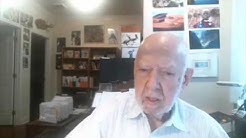Contents
A senior reverse mortgage is a form of Home Equity-Conversion Mortgage ( HECM) for adult house owners above 65 years. The primary objective of a reverse mortgage is to give the folks prime access to property equity without making monthly mortgage payments made in traditional mortgages.
Call it the estate-devouring, nightmare home loan you hope to never encounter: a reverse mortgage with a base interest rate of 9.95 percent, plus a for the lender of increases in.
current reverse mortgage Rates Best reverse mortgage loan rates. Below are current reverse mortgage loan rates. If you have any questions about the rates, please don’t hesitate to call 1-888-888-4834 or Request a NO Obligation quote.
Repayment Rules for Reverse Mortgages. Even though a reverse mortgage is a loan, you’re not required to repay it as long as you’re using the home as your primary residence. The only time that repayment in full is required is if you move out, sell the property in order to buy a new house or pass away leaving no surviving co-signer. If you’re married and your spouse still lives in the home, repayment can be deferred until their death.
What Is Mortgage Means A lender can charge 1 point, several points or no points at all. Points don’t always have to be round numbers. A lender might charge 1.5 points, which would be $3,000 on a $200,000 mortgage.
A reverse mortgage can impact how much inheritance you actually leave to your heirs, if any, and it all depends on the market conditions and property values. If you decide to keep your reverse mortgage, here’s what you need to know about what will happen when you or the owner dies:
It seems that one of the most popular questions we get is what happens with my reverse mortgage and my home after death. The reverse mortgage is intended to be the last loan that borrowers will ever need, so this is a question many homeowners and their heirs have on their minds as many of them intend to keep the loan and the home for life.
· How do they work and who should consider a reverse mortgage, if anyone?. program – which is the program used most often by reverse mortgage lenders – a 65-year-old who owns a house.
With a Reverse Mortgage, You Get the Benefits of "Selling Your Home". The misconception that the bank owns your home with a reverse mortgage is understandable – in a way it is similar to selling your home to a lender, but only a portion of it! The reverse mortgage pays off your existing mortgage.
